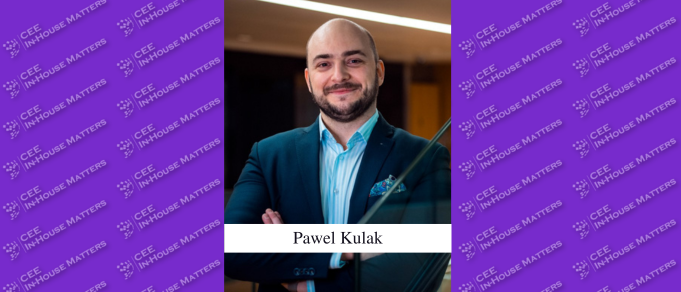Back in the 2000s, the conditions for getting a loan from a Croatian bank were quite strict and complicated. Beside a good credit rating, the banks were asking for a number of securities: mortgages, guarantors, etc. Recognizing that as a good business opportunity, many foreign financial institutions (primarily banks and leasing companies, but also financial cooperatives) decided to enter Croatian market.
Venture Capital Structures in Bulgarian Start-Ups
Venture capital investments in Bulgarian start-ups are on the rise, and modern legal structures such as share option plans and convertible notes can, if local law peculiarities are taken into account, be applied in the country.
Significant Interest and Activity in the Hungarian Start-Up Ecosystem
The last 18 months have seen significant interest and activity in the Hungarian start-up ecosystem.
Share Swaps and Share Contributions Still Hampered by Romanian Authorities
One of the most controversial parts of corporate reorganization operations planning in Romania involves the use of share capital contributions or share swaps as a means to transfer company control – operations that fall into a legislative and administrative grey area.
Electronic Documents: Will They Prevail or Exist in Parallel With Hard-Copy Documents?
In this era of digitalization, where legal frameworks around the world are rapidly changing to cope with revolutionary developments in the IT sector, the Serbian Government is following a similar path. Serbia is in the EU accession process and is thus obliged to harmonize its legislation with EU laws. One such law is EU Regulation No. 910/2014 on electronic identification and trust services for electronic transactions in the internal market (the “Relevant EU Regulation”).
Amending the Slovak Commercial Code: Wielding a Double-Edged Sword to Protect Creditors
In Slovakia, the purposeful avoidance of insolvency and liquidation proceedings by failed companies (including VAT carrousel fraudsters) has developed into a common market standard.
The Rise of Screening Foreign Direct Investments into EU and Slovenia
The EU has always acknowledged the positive effects of foreign investments into member states and thus has one of the most open regimes in this regard. But in light of recent security issues in Western countries, the EU’s view on foreign investments has slightly changed, and out of concerns for both security and public order direct foreign investments could soon become subject to a so-called “screening mechanism,” in which they would be reviewed by the member state where the investment is planned, by the European Commission, and by other member states.
Employees Participating in Company Management: The Road to Hell is Paved with Good Intentions
The old Czech Commercial Code, which dated from 1991, prescribed that one third of the supervisory board of joint-stock companies with more than 50 employees must be elected by the employees. This originally brief regulation became increasingly complex, and by the time the Commercial Code was repealed thirteen years later it included detailed instructions on the matter.
Company Reincorporation Under Scrutiny: New ECJ Ruling in the Polbud Case
Cross-border reincorporations have long been of interest not only to legal scholars, but also to legal practitioners and entrepreneurs from various business fields.
Exercise of Stock Options Under the Commercial Law of Latvia
Granting of stock options to employees is not new; it has been used for many decades around the world.
Liability of Company Directors Under Lithuanian Law
The Supreme Court of Lithuania has established a precedent that tightened rules on personal liability for directors of companies.
Squeeze-Out of Minority Shareholders in Macedonia
Macedonia’s 2013 Law on Takeover of Joint Stock Companies provides a squeeze-out right enabling a majority shareholder who has acquired at least 95% of the shares of an eligible joint stock company on the basis of a takeover bid to require the minority shareholders to sell their securities at a fair consideration.
Developments in Incentive Regulations
Investments can be used as tools to support and enhance a country’s economic structure. The Turkish government has developed some policies which, together, create an appropriate and advantageous investment environment for international and domestic investors.
How Should HR Departments Process Employee Data in Accordance with Data Protection Law?
Turkey’s Data Protection Law, which was published in the country’s Official Gazette on April 7, 2016, established the legal framework for the protection of personal data in Turkey and added new obligations for employers.
Labor Law in Turkey
The Law on Labor Courts Number 7036 was published and announced in the Official Gazette on October 25, 2017. One of the most important amendments stipulated in this law (the “Law”) is the introduction of a “mandatory mediation” procedure. Mediation is based on a “win-win” philosophy; this is a process where no one loses.
New Tax Code Changes Require Brand New Tax Dispute Strategy
The traditional methods of tax audits and tax litigation in Hungary will soon be a matter of the past, as three new codes have recently been adopted by Parliament and will come into force on January 1, 2018. Naturally, they are a hot topic in the industry.
Tax System in Macedonia
The last decade of the previous millennium set the Republic of Macedonia on a new course, with EU & NATO integration a number one priority for the country in the Western Balkans. This new course meant that reforms in almost all areas of state management were inevitable.
Improvement of the Measures Against Tax Evasion and Tax Fraud in Bulgaria
One of the defects of the Bulgarian tax system and of the enforcement authorities in Bulgaria – the lack of direct access to information for the purposes of administrative cooperation (the automatic exchange of information) between the relevant authorities and legal entities – is on its way to being resolved.











































